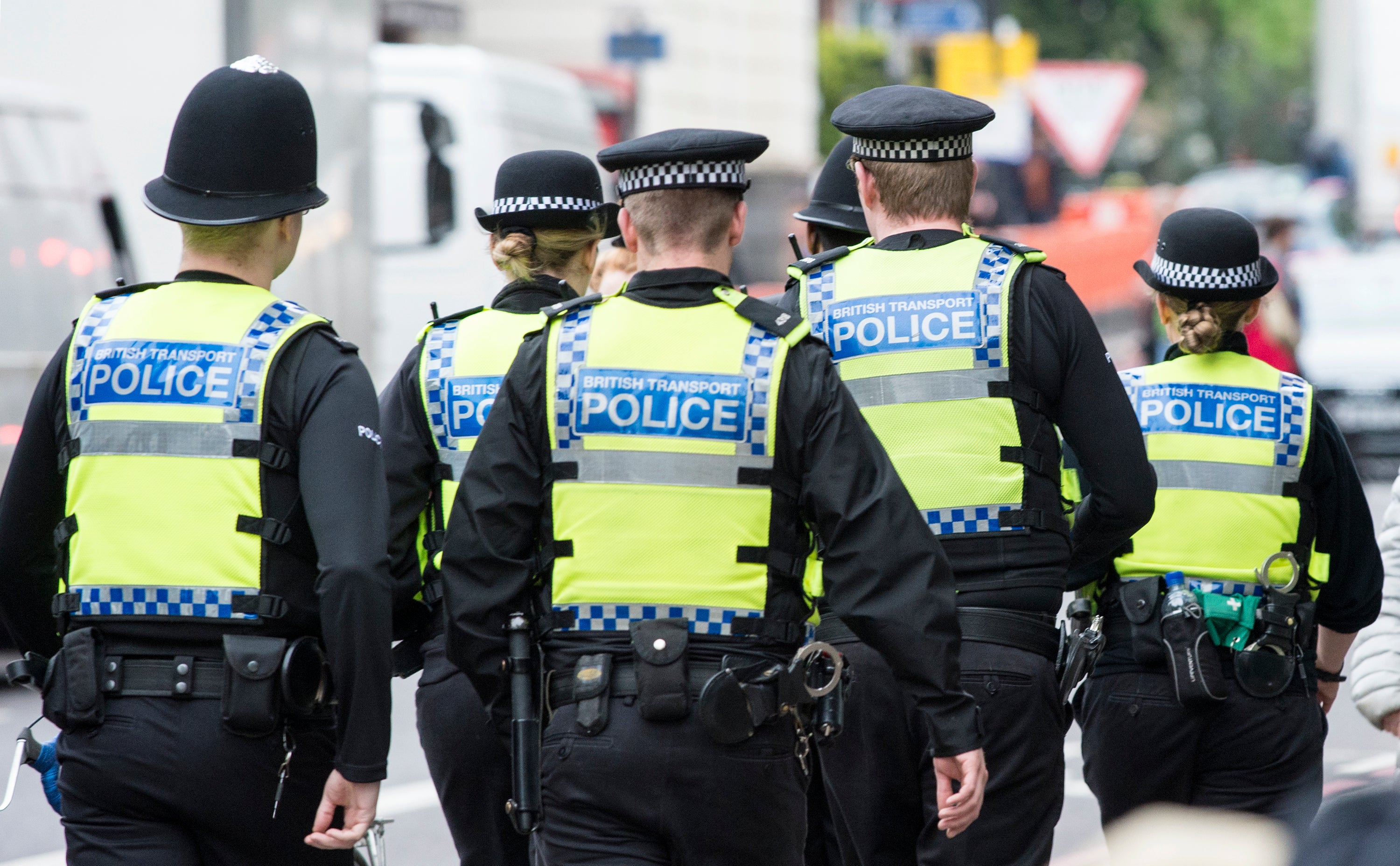Police officers accused of domestic abuse going unpunished and being allowed to remain in jobs
Some victims arrested after reporting police officers as failings leave public at risk, report finds

Police officers accused of domestic abuse are going unpunished and being allowed to remain in their jobs, leaving victims and the public at risk, a report has found.
A super-complaint by the Centre for Women’s Justice (CWJ) triggered an investigation by the College of Policing and two watchdogs that found “systemic” failings.
A report published on Thursday found that while a tiny proportion of officers accused of domestic violence are prosecuted or dismissed from their jobs, victims who work in the police have been arrested after reporting abuse by partners in the same force.
Many reported being ostracised, bullied, removed from their jobs or even investigated themselves, forcing them to move forces or leave policing entirely.
Fear of repercussions is preventing women from reporting crimes committed by police officers, the super-complaint found, meaning that abusers may not be identified.
The report said that police abused by fellow officers are “not treated properly as victims” or protected, and that their safety and the safety of the wider public is not being adequately considered.
A focus group participant told officials they were aware of a domestic abuse victim being “removed from their position” after giving a statement against a high-ranking officer, who remained in their role.
In a different case, an officer was left in his role working with vulnerable victims of domestic abuse, despite being under investigation for a serious domestic assault himself.
After a separate victim called 999 to report a violent attack by their partner, in the police, she said he had threatened that her children would be taken away if she reported the abuse, but no action was taken despite “clear indications they were experiencing domestic abuse”.
In another case, a victim reported that their ex-partner, a police officer in a “sensitive public-facing role”, was harassing them but a probe was closed within days with the officer receiving “words of advice” from a manager.
Some police officers interviewed as part of the super complaint process voiced concern that officers in specialist roles, like armed police, were less likely to be suspended because of staff shortages.
In one case reviewed, an officer was left in a firearms role while under investigation for domestic abuse and had not been re-vetted.
Victims raised concerns over corruption and investigators warned that safeguards were not working as they should be, meaning that some cases are investigated by officers who know the perpetrator.
Only 9 per cent of the recorded police-perpetrated domestic abuse offences (PPDA) examined resulted in a charge, while “very few” saw officers subjected to misconduct proceedings and considered for dismissal.
Out of 122 cases where suspects were investigated by their own force, only 47 people were investigated for misconduct, seven of those resulted in disciplinary proceedings and six were dismissed.
A joint report by the College of Policing, HM Inspectorate of Constabulary (HMIC) and the Independent Office for Police Conduct (IOPC) concluded: “Forces should be responding particularly robustly to PPDA allegations given the risks involved in having domestic abusers in police forces.
“There is a potential for accused police workforce members to abuse their position, knowledge and powers to harm their victim or others.
“There is also a substantial risk to public trust and confidence in policing if police workforce members accused of crime are not robustly investigated.”
The super-complaint did not find evidence that domestic abuse by police was investigated less well than other types, and said it had a similar charge rate of around 10 per cent, but warned that the overall response needed to improve across the board.
The CWJ, which instigated the complaint in March 2020 in collaboration with the Bureau of Investigative Journalism, said it has now been contacted by 165 women whose accounts include failures to investigate and conduct amounting to corruption.
The body said the report’s recommendations fell short of the changes it called for, including referring the investigation of all reports of domestic abuse by a police officer to an external police force.
Harriet Wistrich, director of the CWJ, said:: “We are pleased that the lid is now lifted into the scandal of police perpetrated domestic abuse and the failures to tackle it. However, shortcomings in the super-complaint process of investigation mean that some of the most egregious accounts of corruption have not been investigated.
“For this reason we maintain our call for a statutory public inquiry into police perpetrated abuse.”
The report was published after the Metropolitan Police became the latest in a record number of forces to be put in special measures by HMIC over unaddressed failings.
An inquiry sparked by the murder of Sarah Everard is already looking at issues around the vetting of officers, and the super-complaint found that domestic abuse allegations must be considered as part of the process.
HM Inspector of Constabulary Roy Wilsher said: “Domestic abuse is a terrible crime and it's natural that when such abuse is perpetrated by police officers and staff, the public want to know that cases are being investigated thoroughly.
“While many forces are already taking steps to do this and most police officers act with the utmost integrity, we found that not all forces are treating these cases with the gravity they deserve, and that is not good enough.”
The report listed a series of recommendations aiming to improve the response to domestic abuse by police officers, and the IOPC is to carry out a targeted programme of oversight work.



